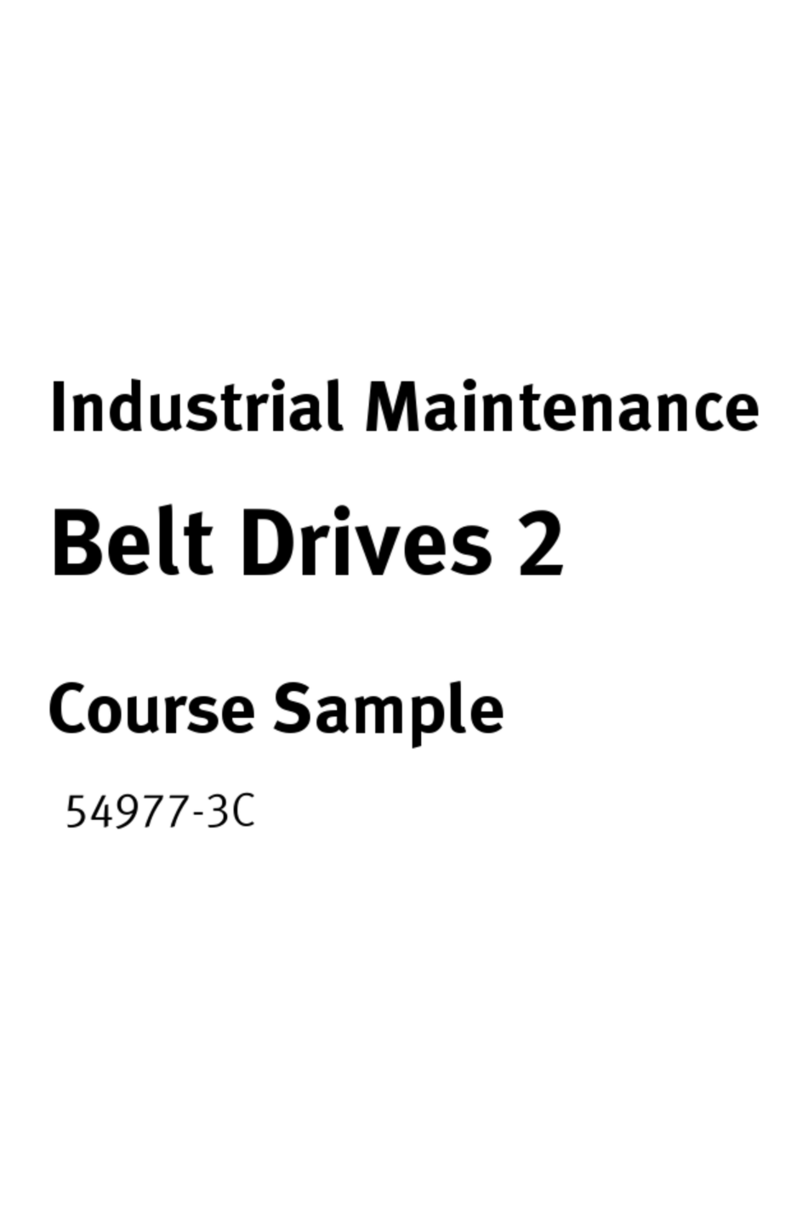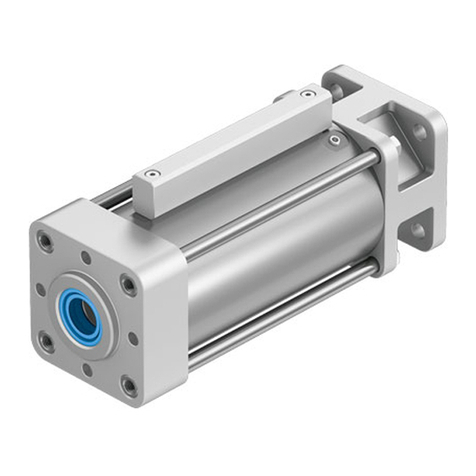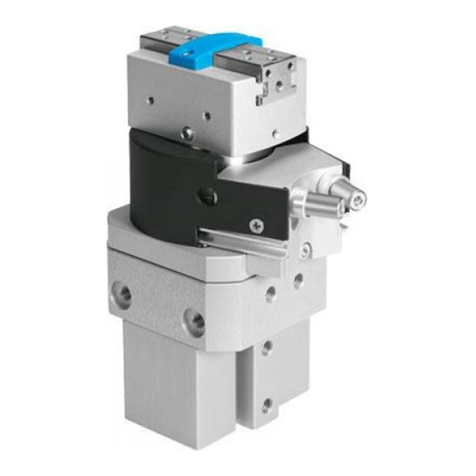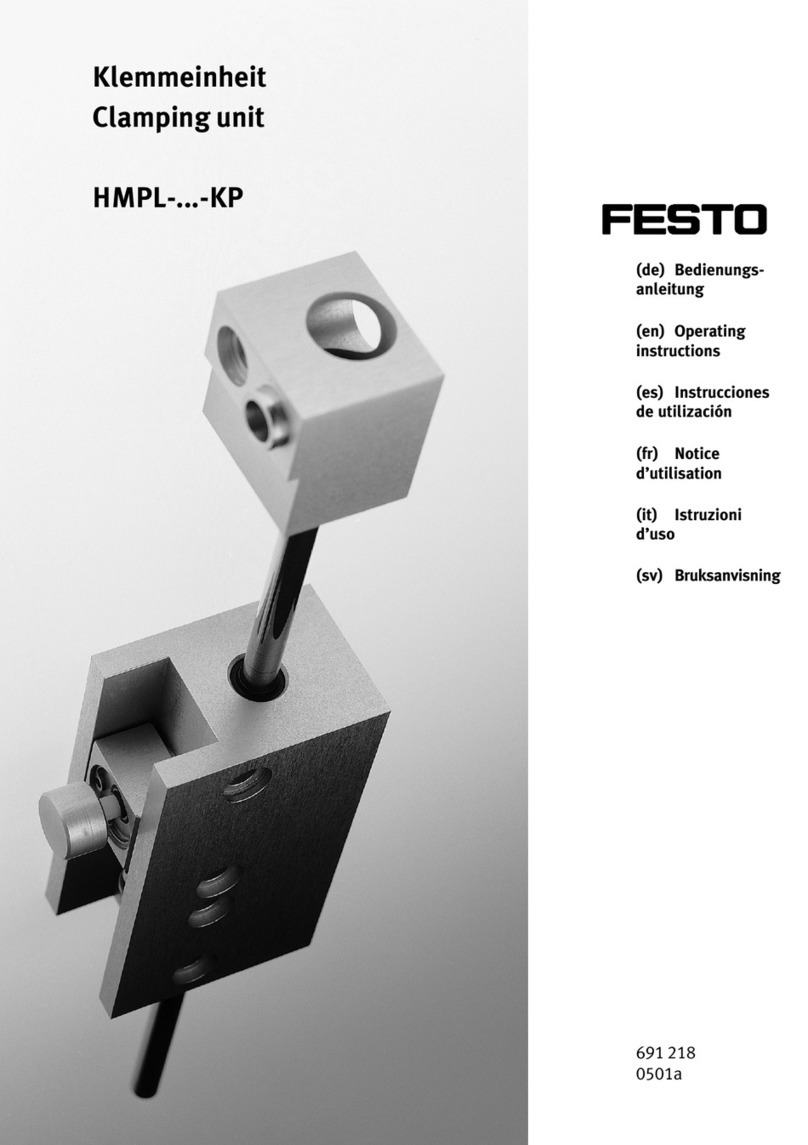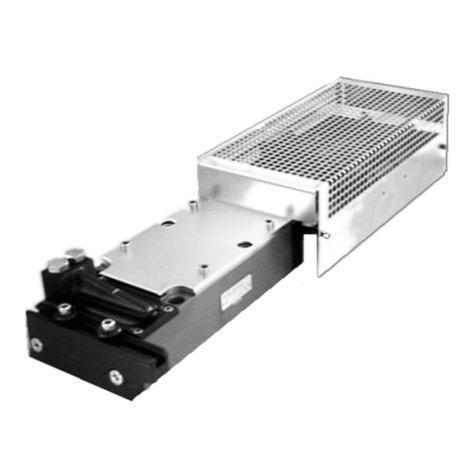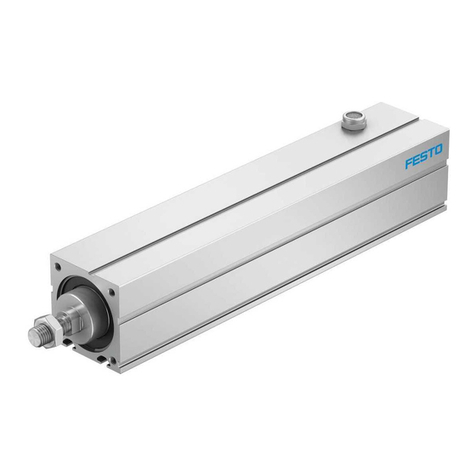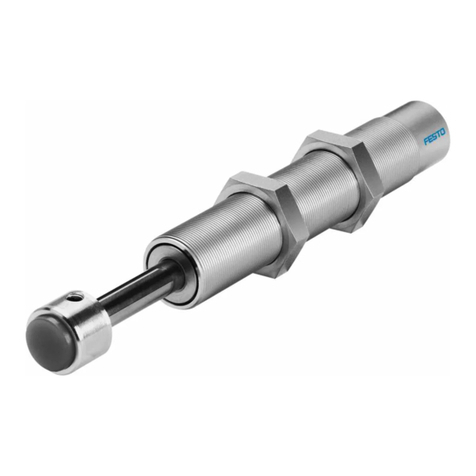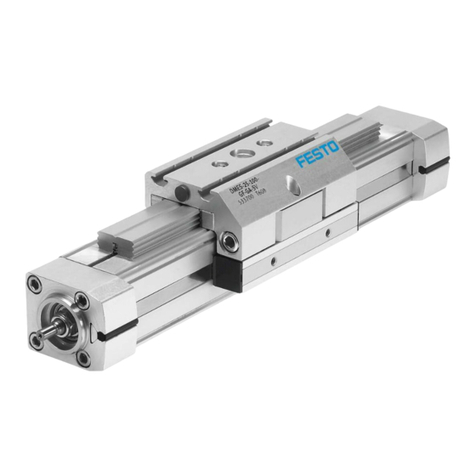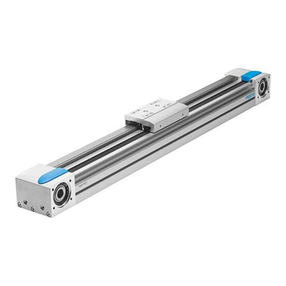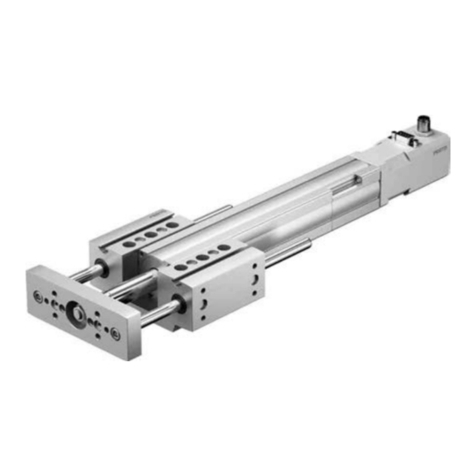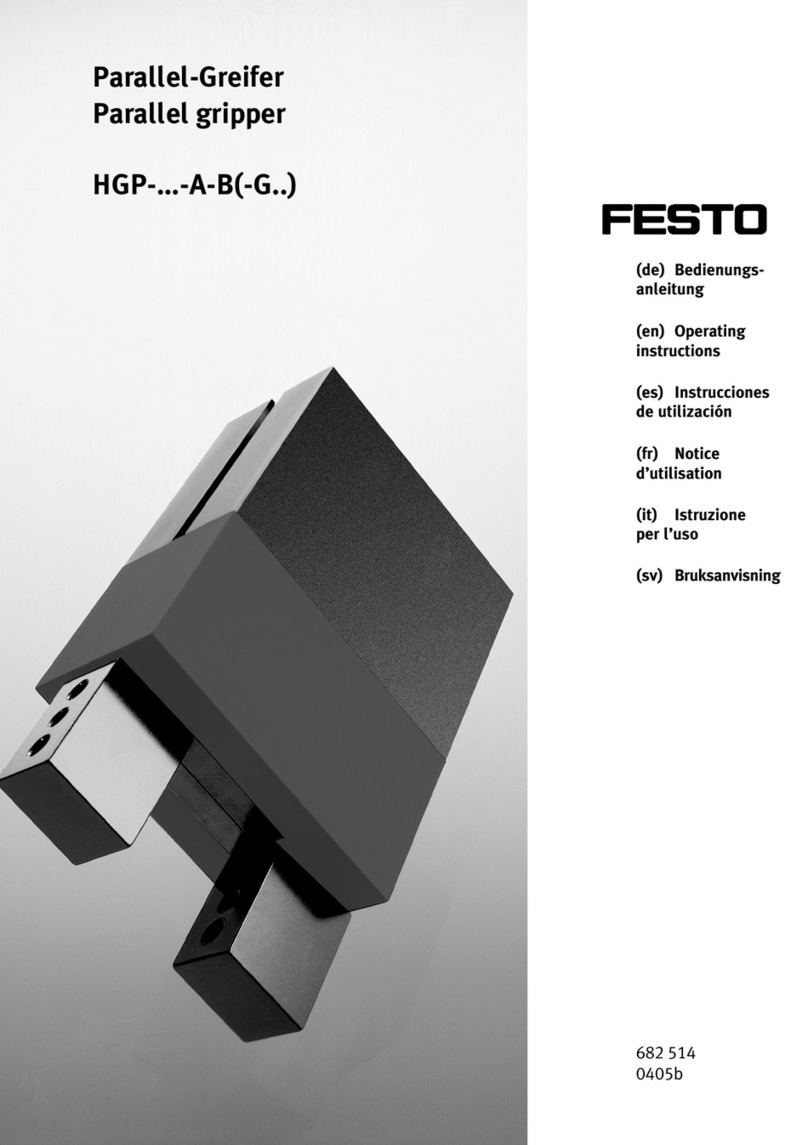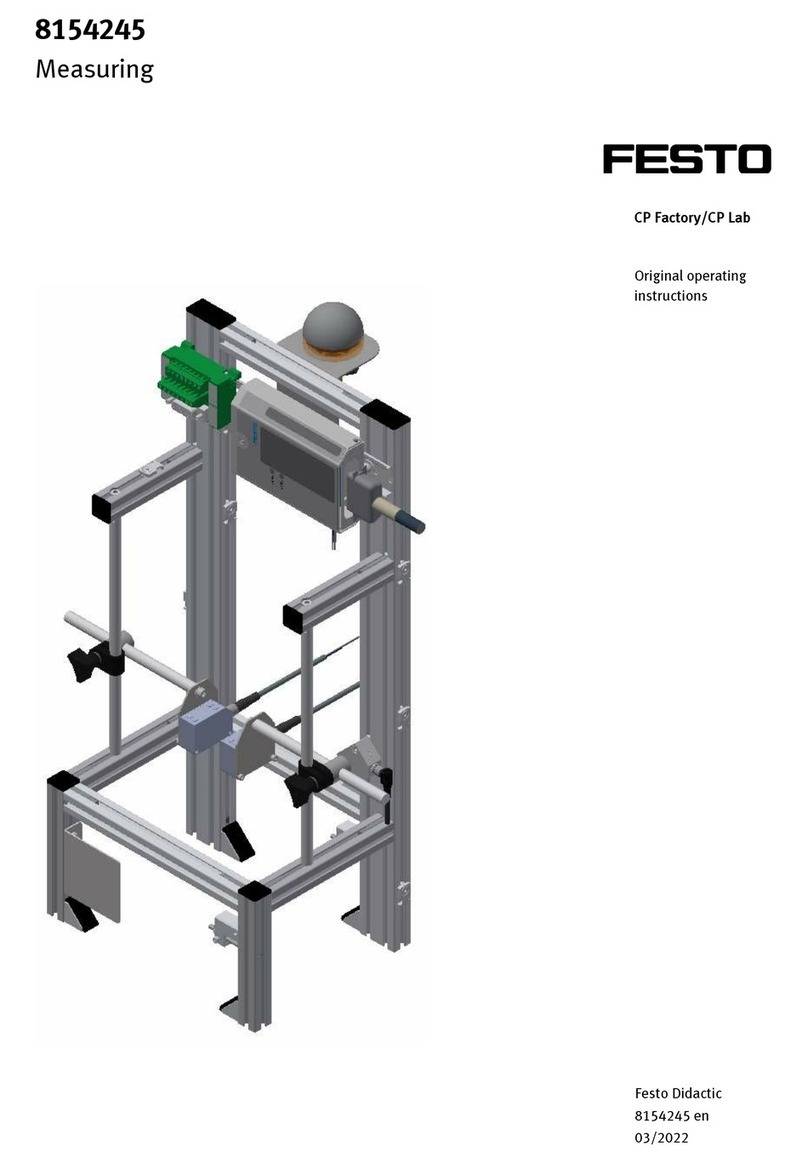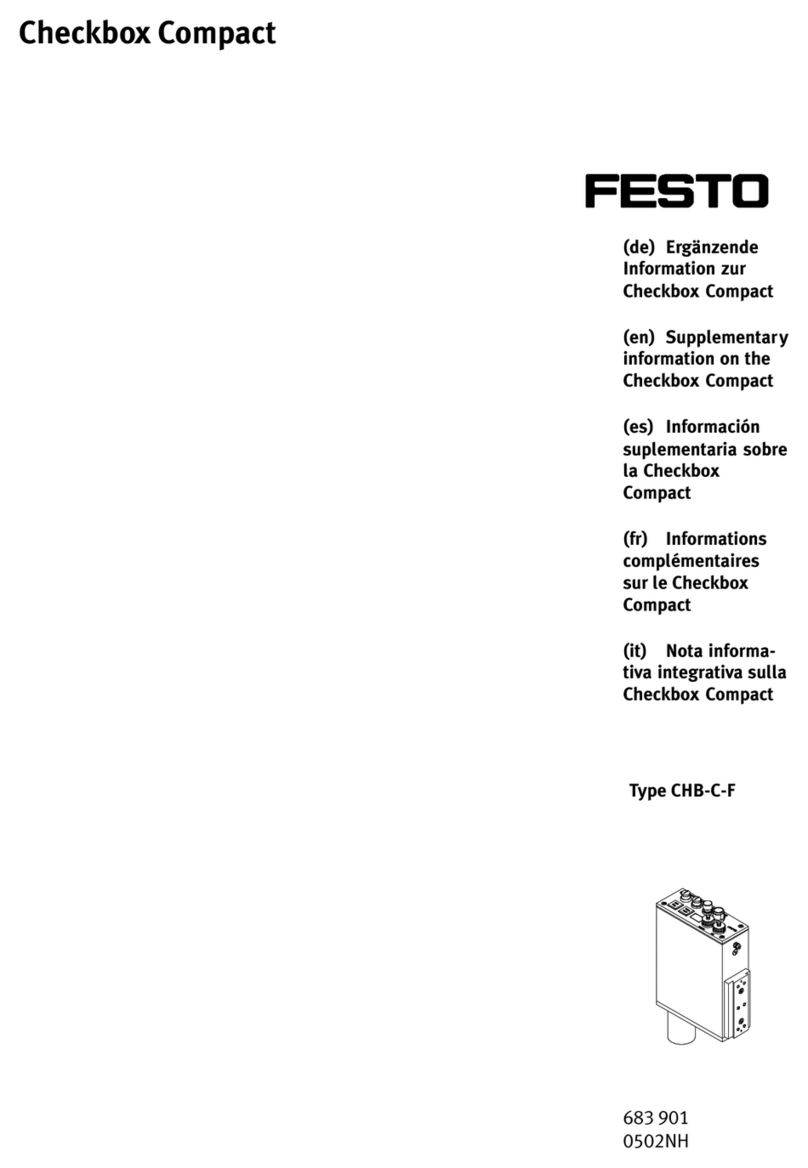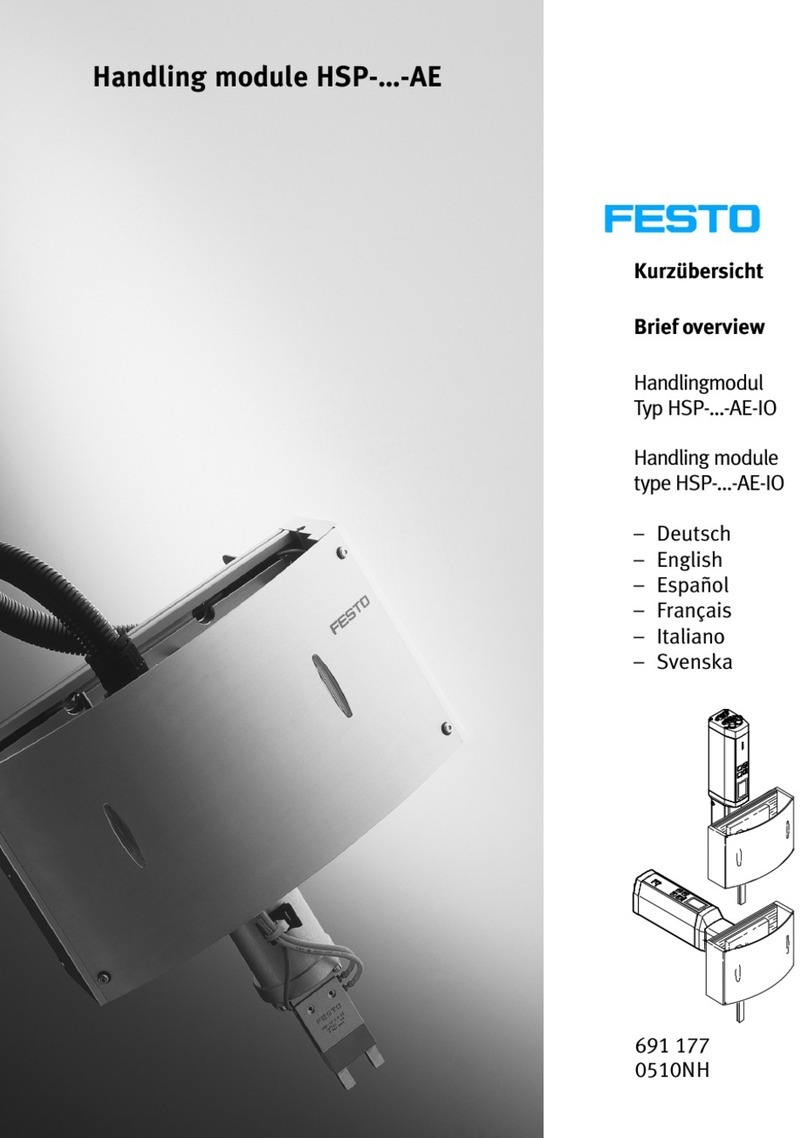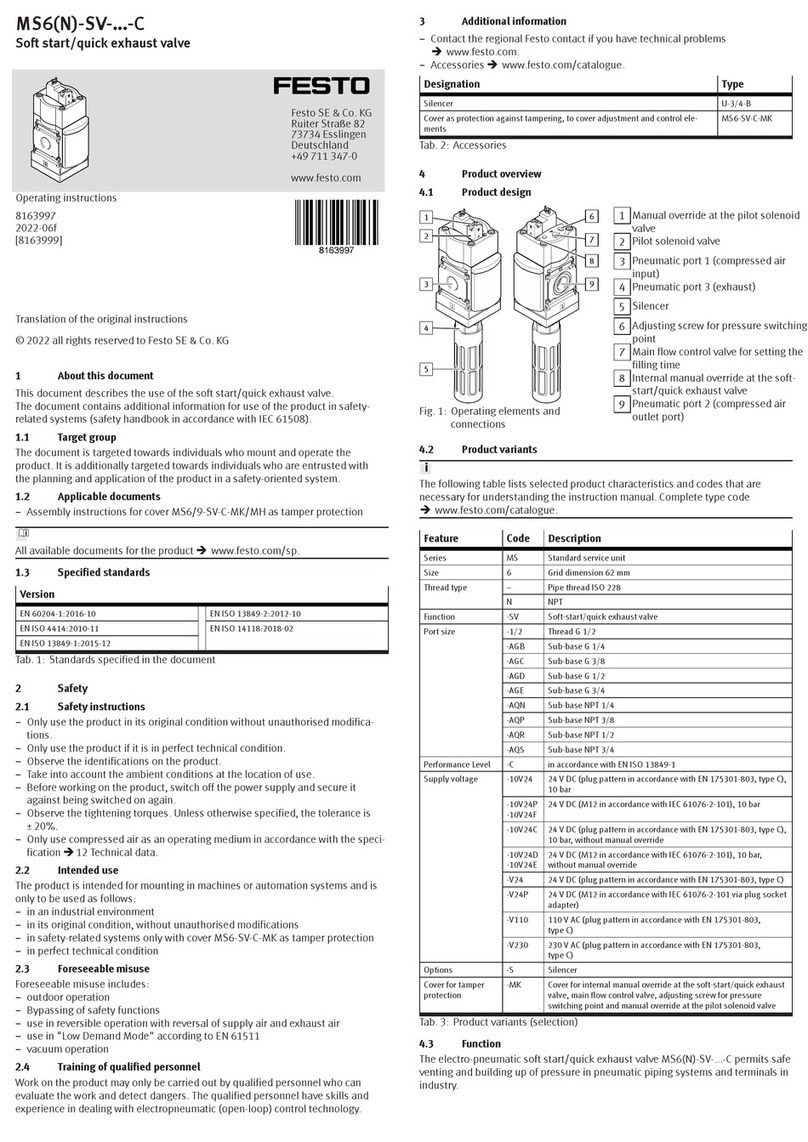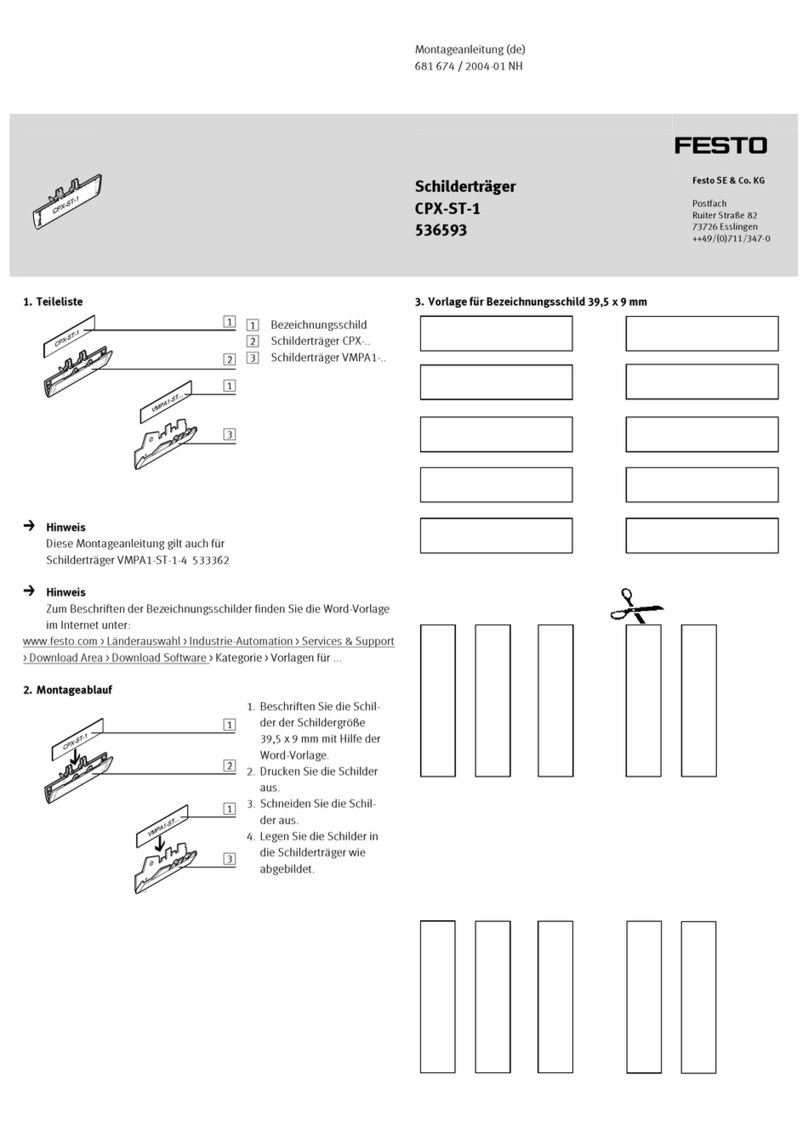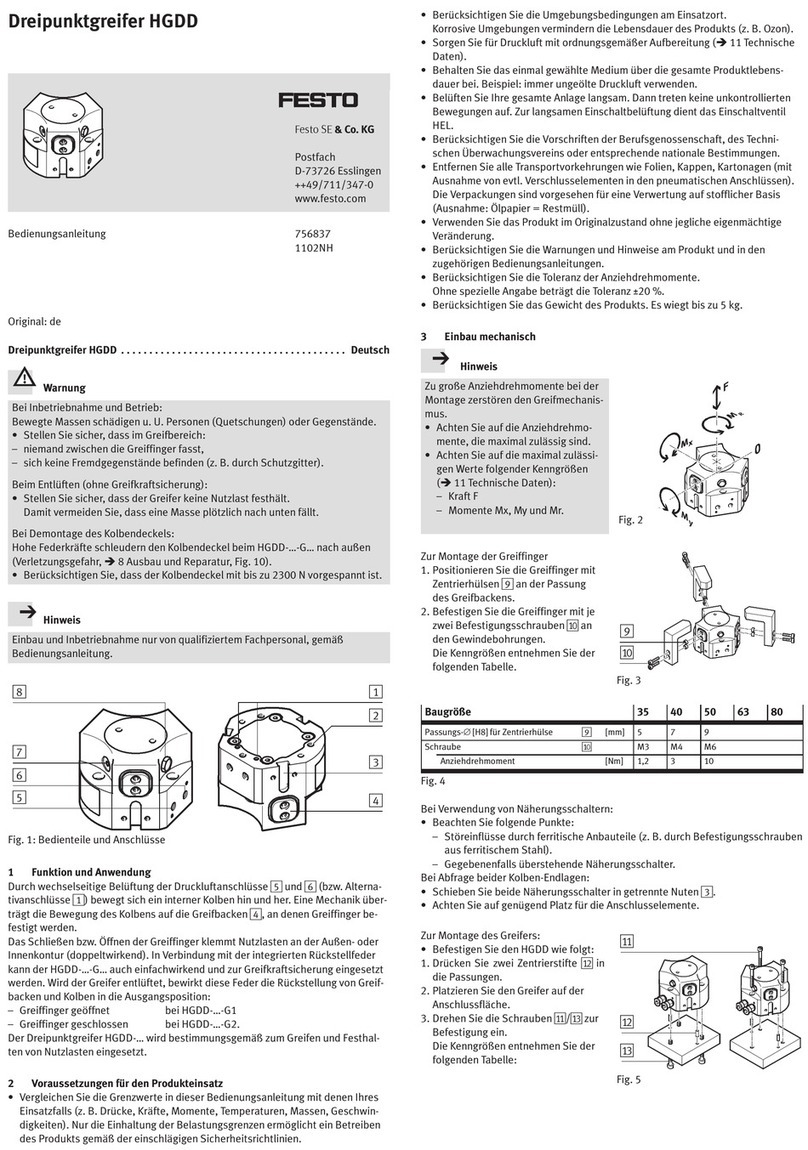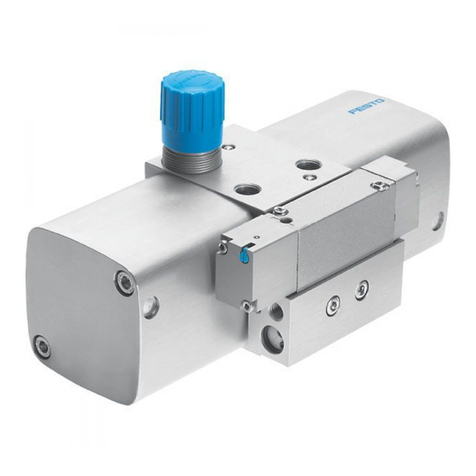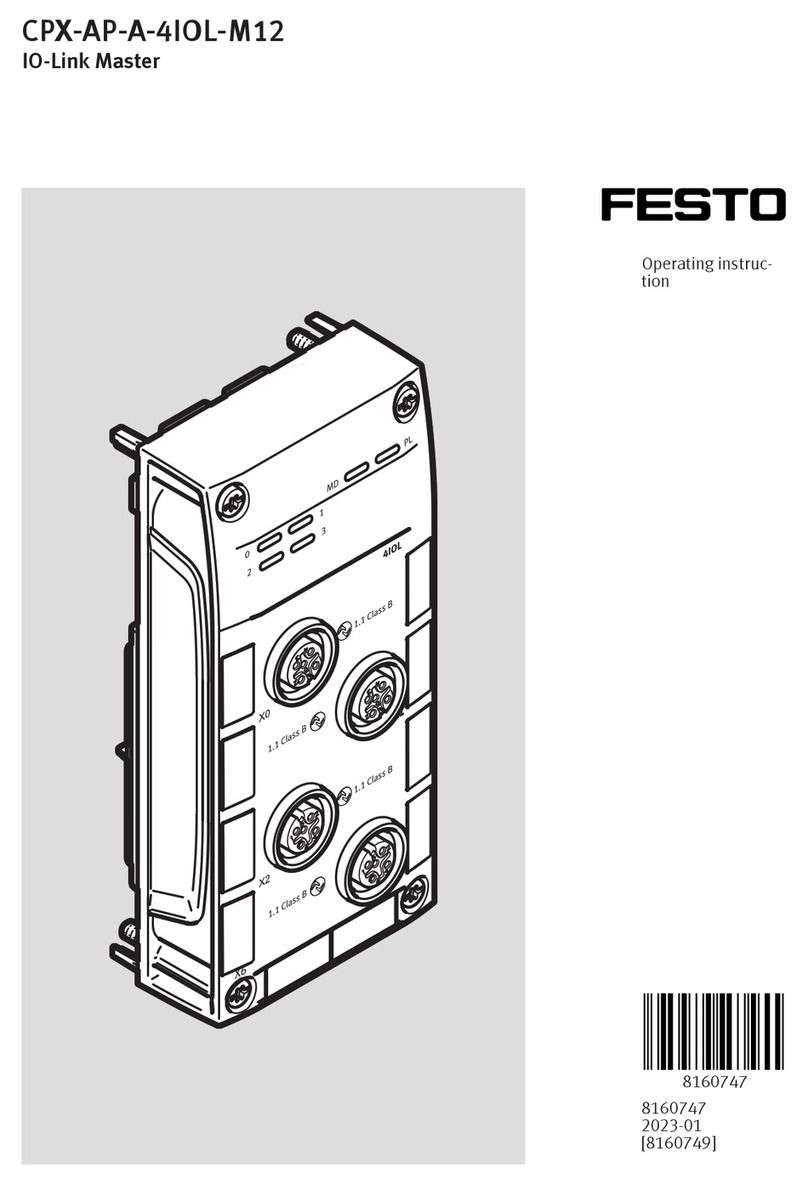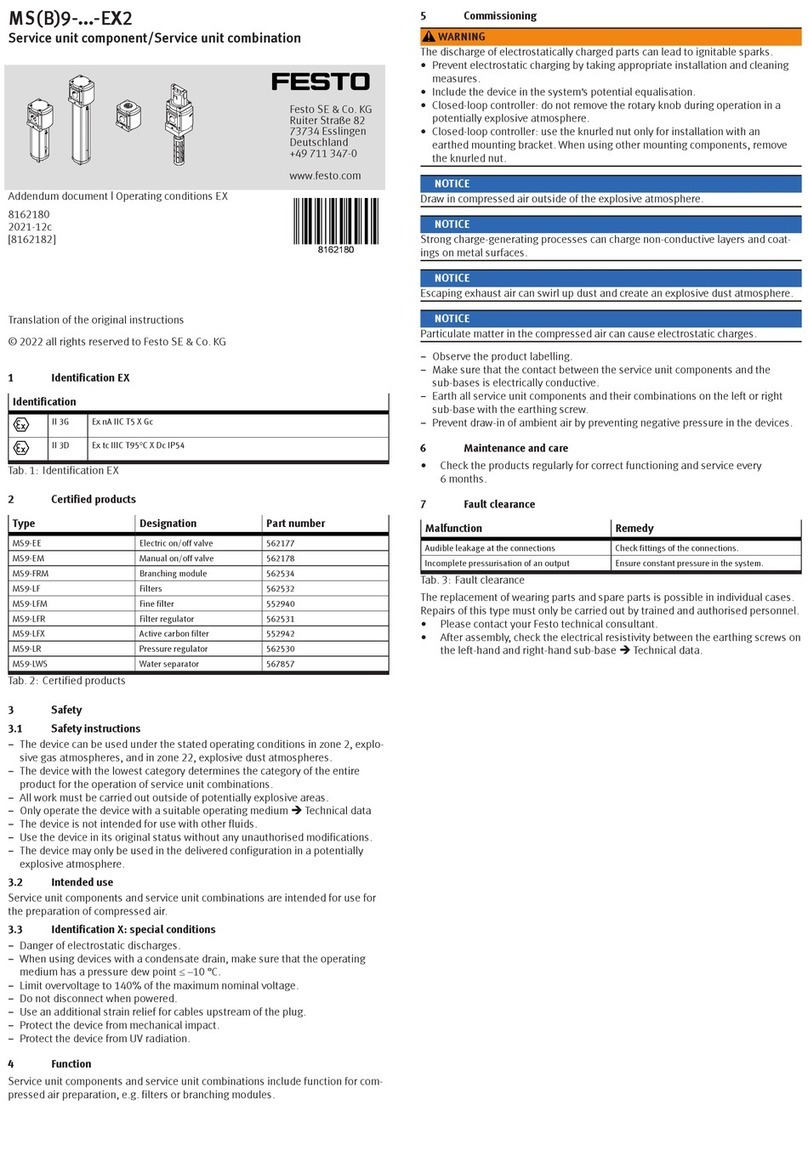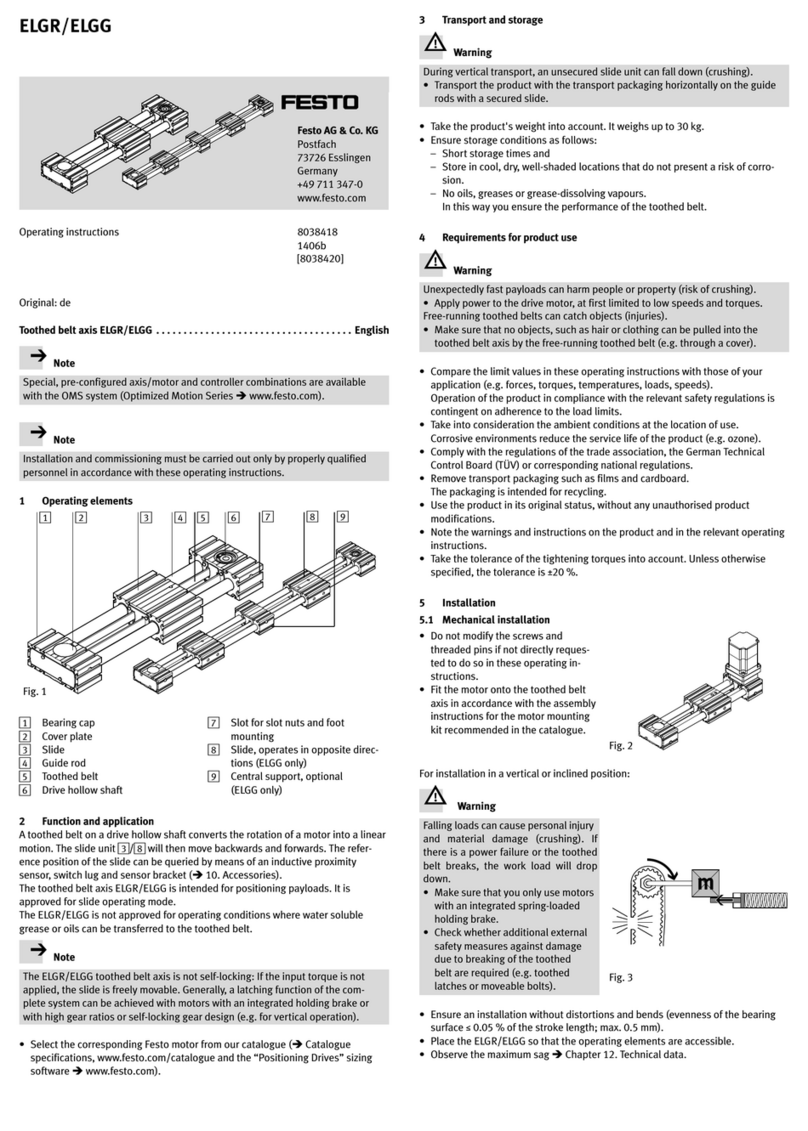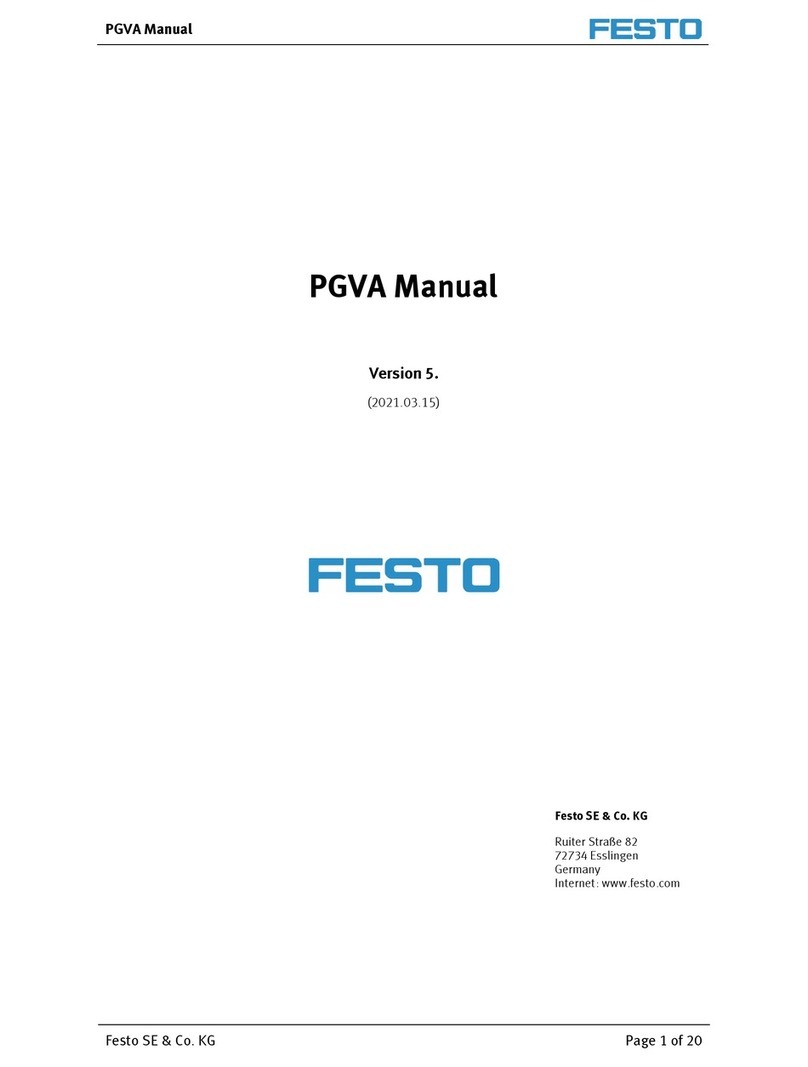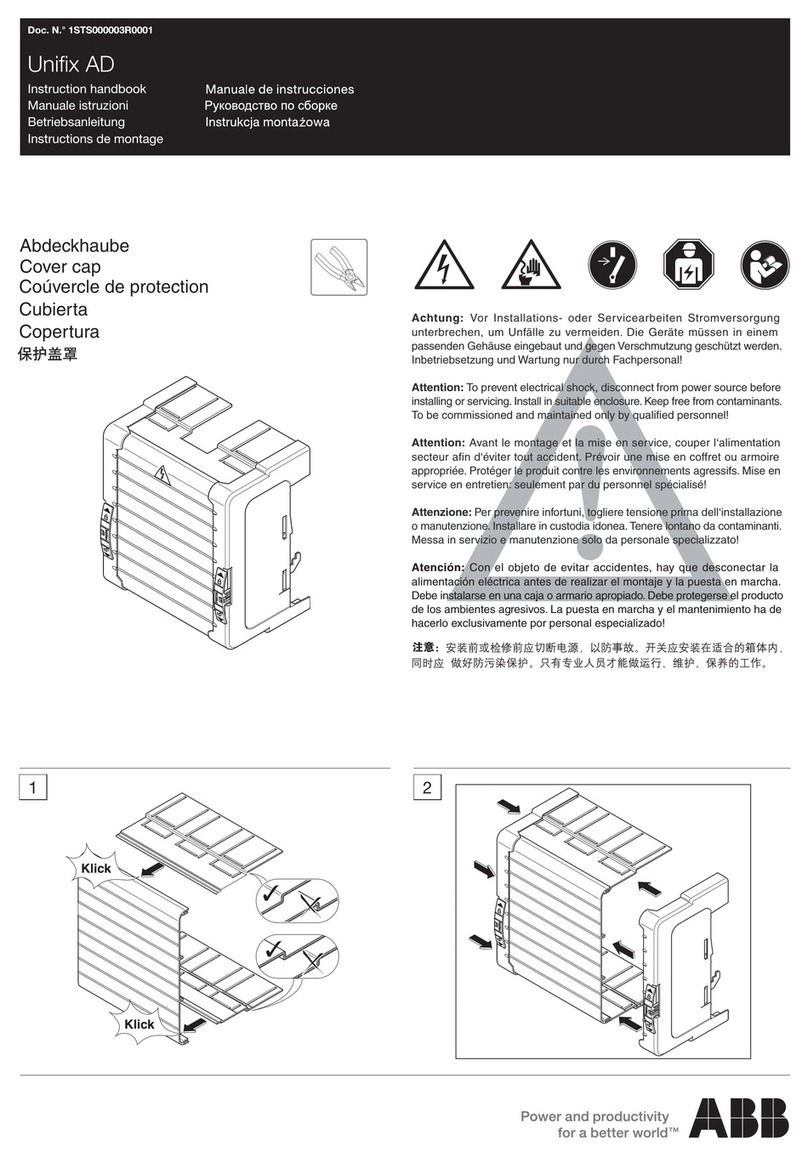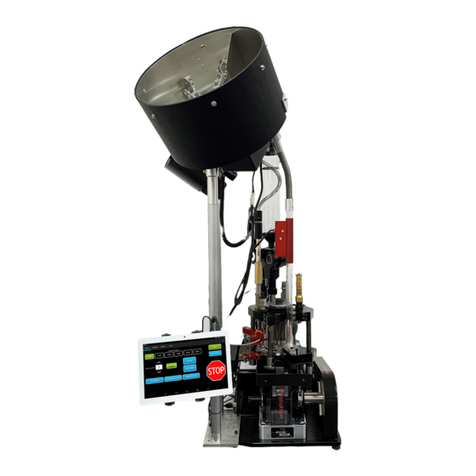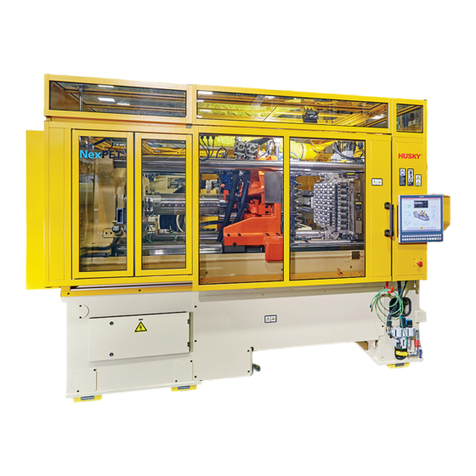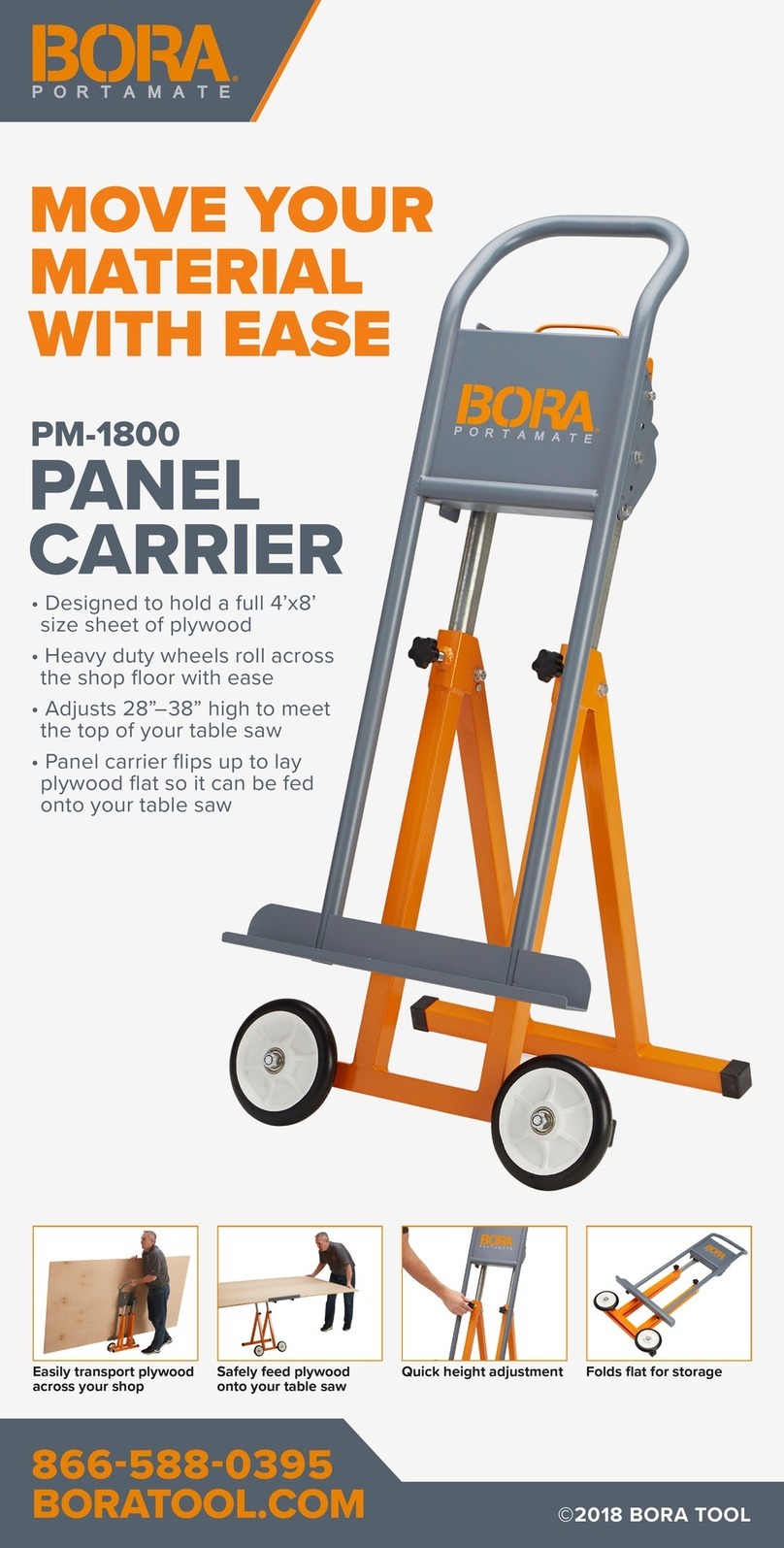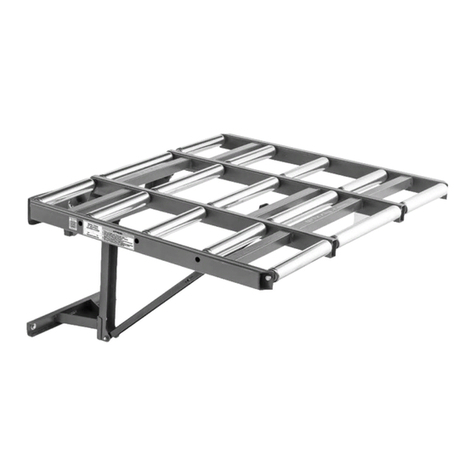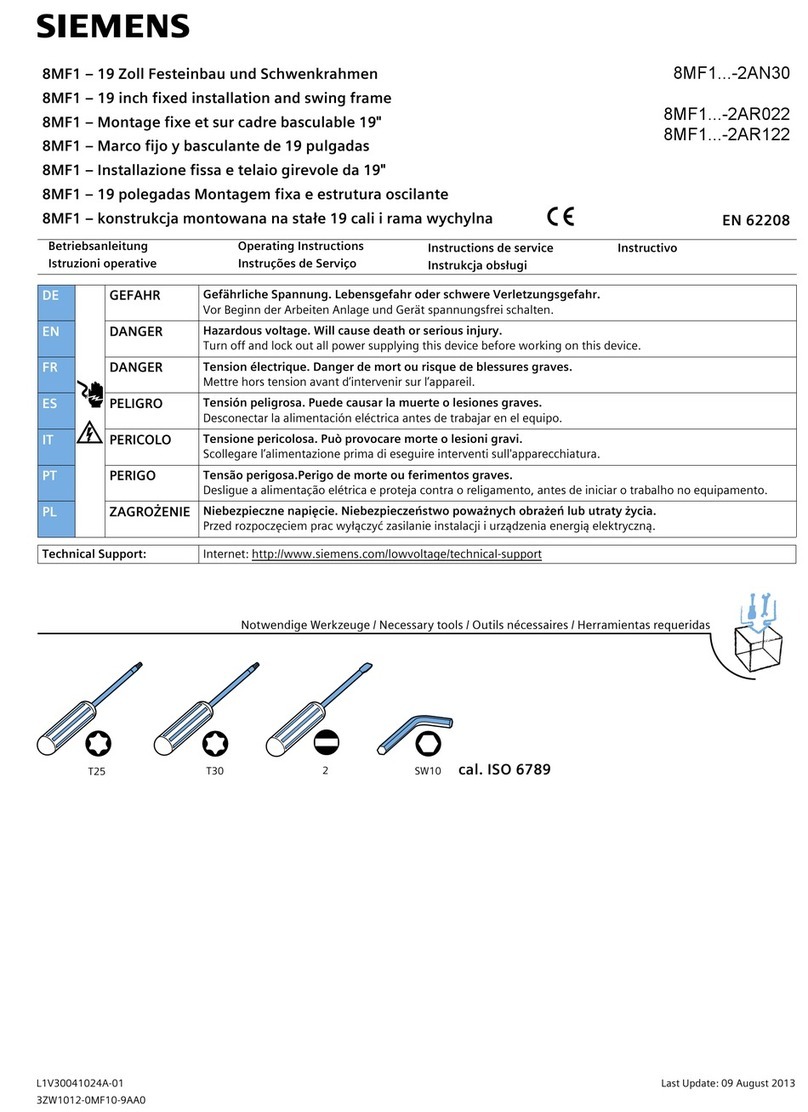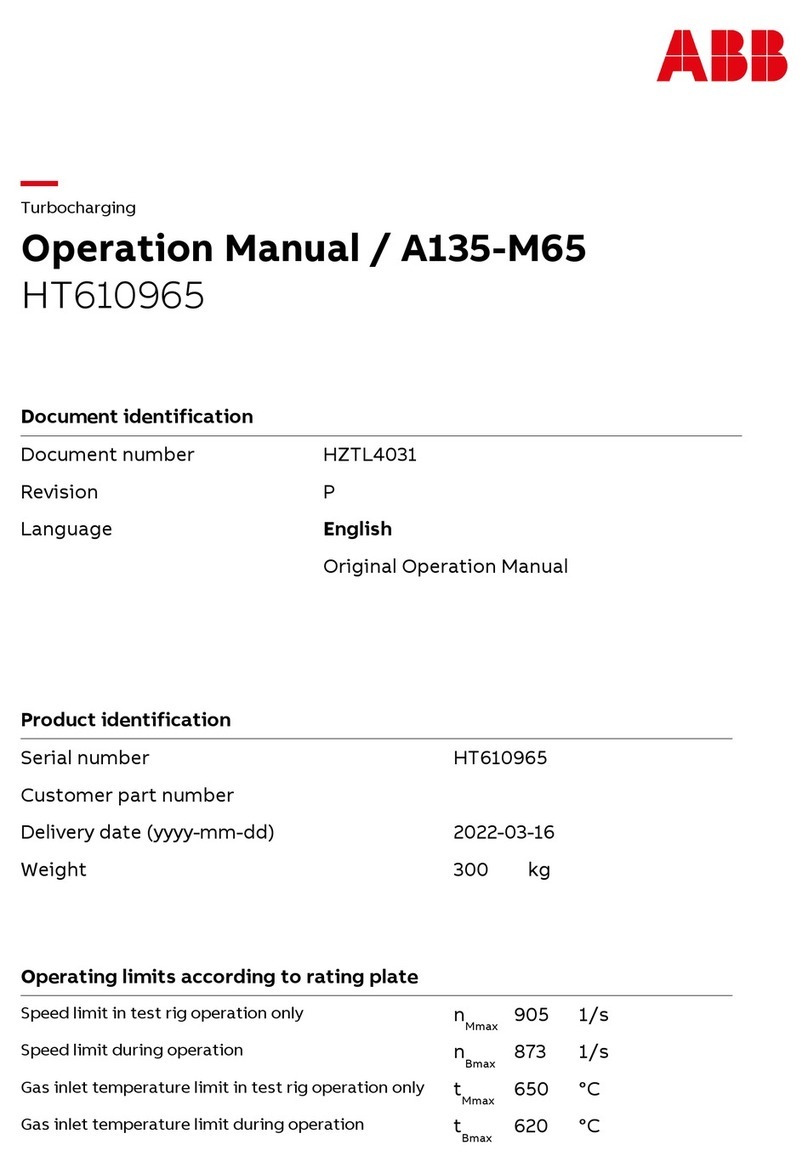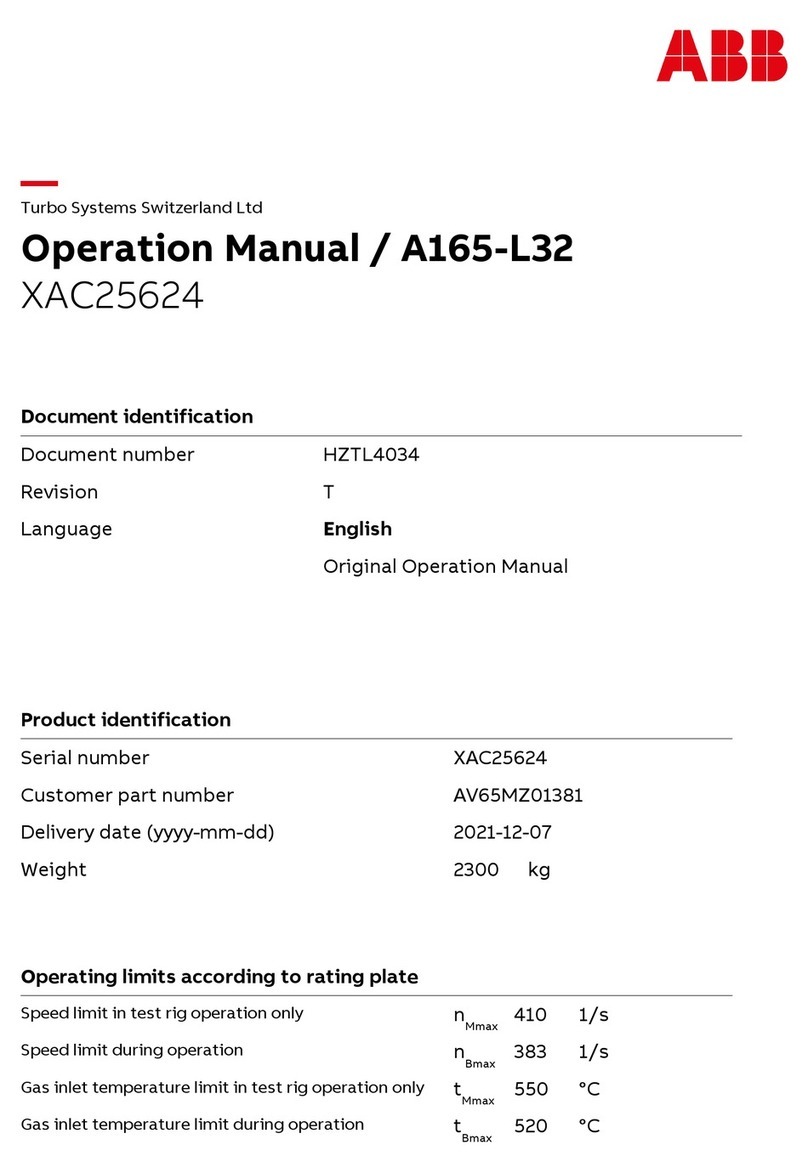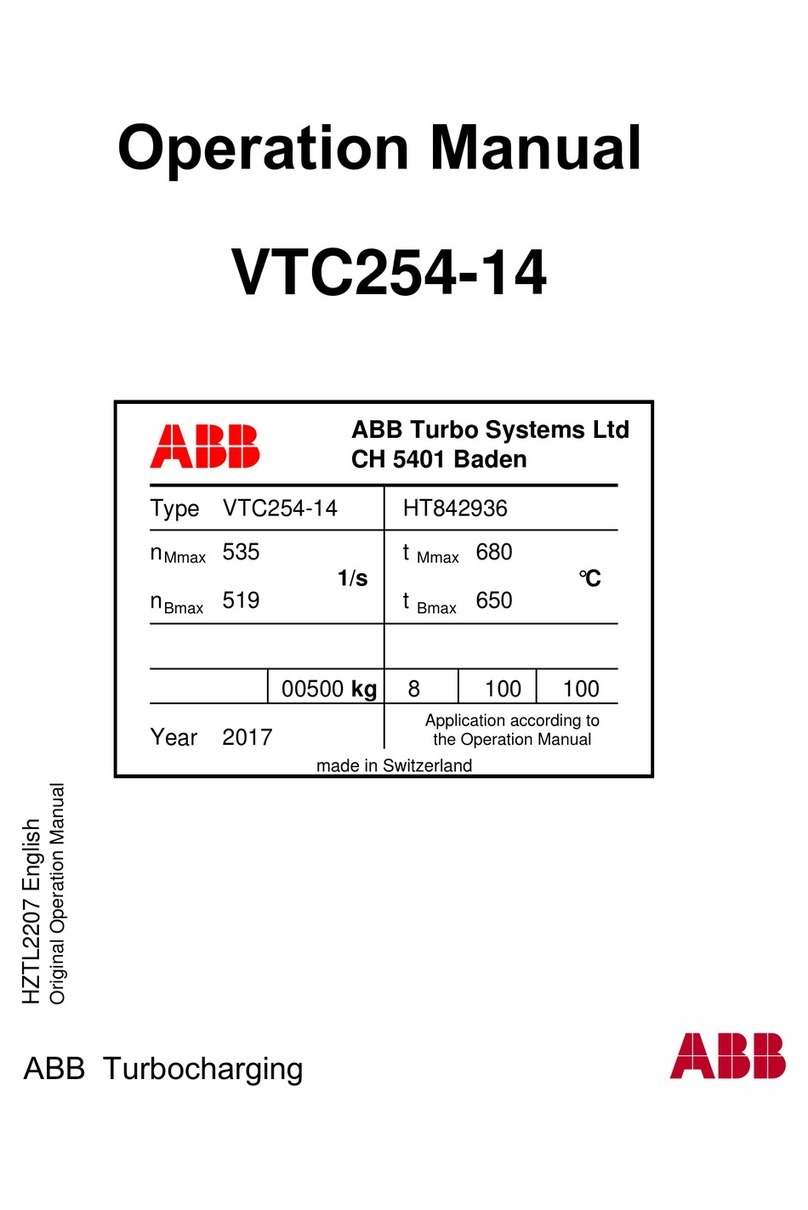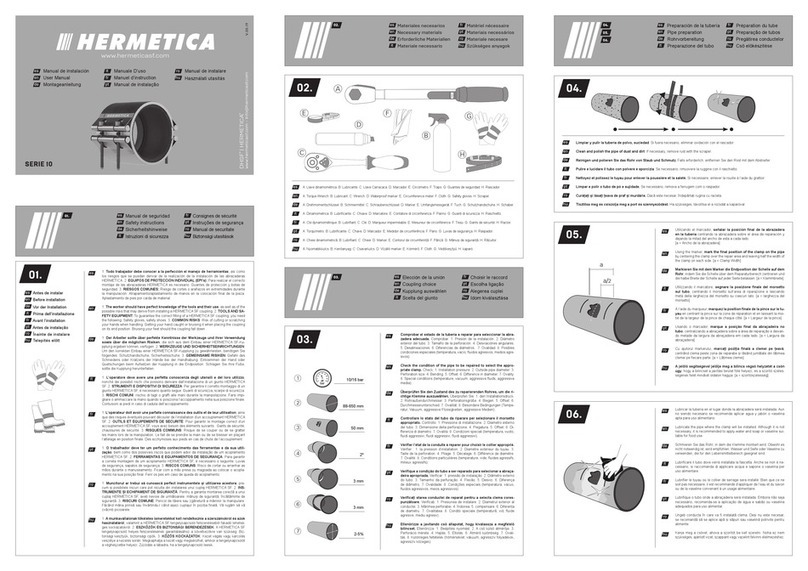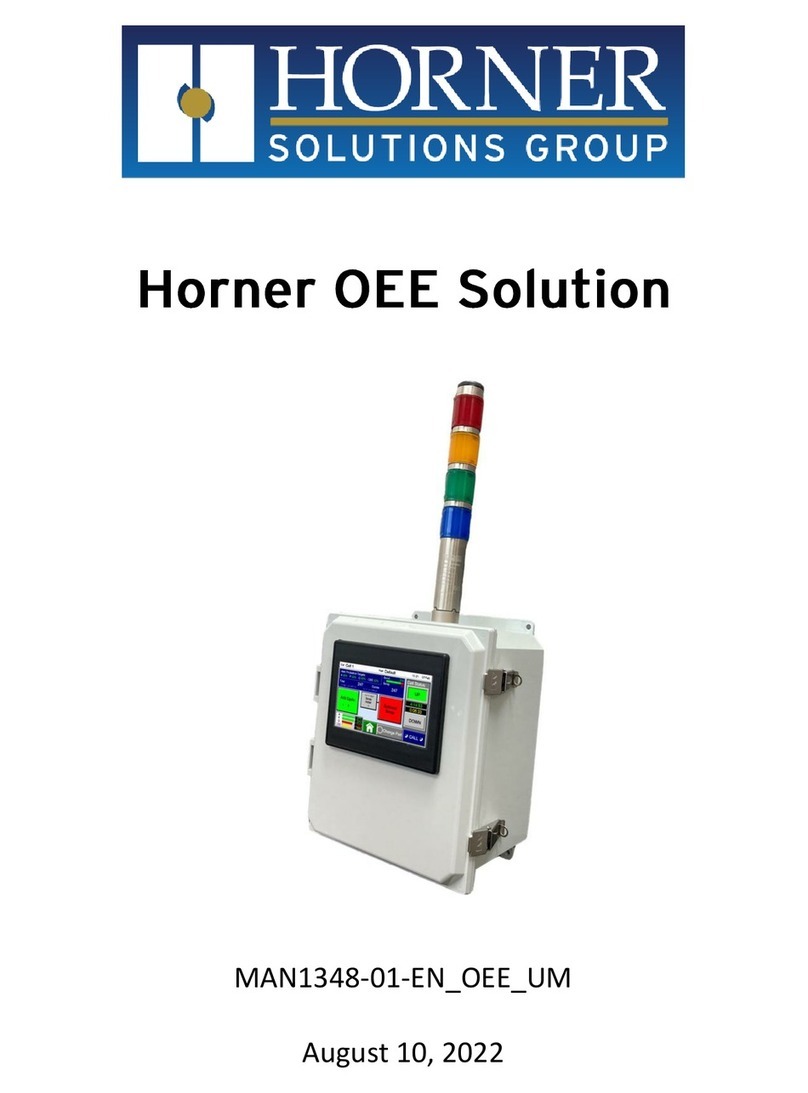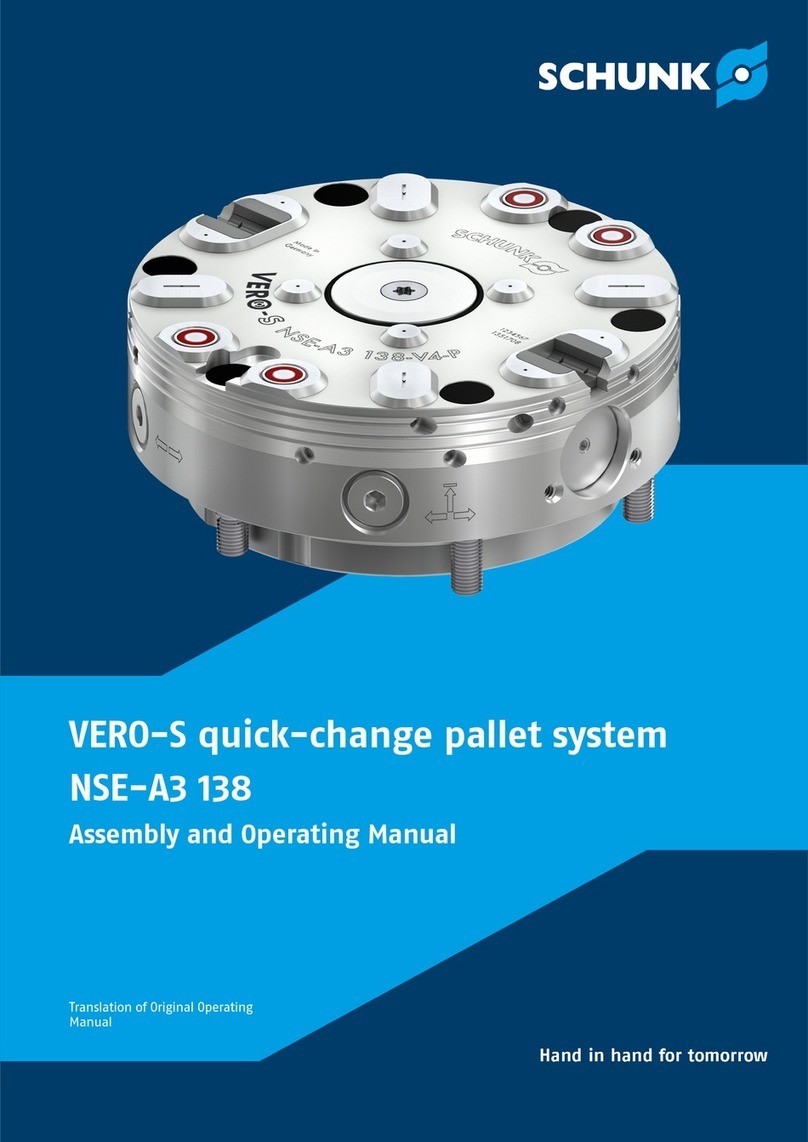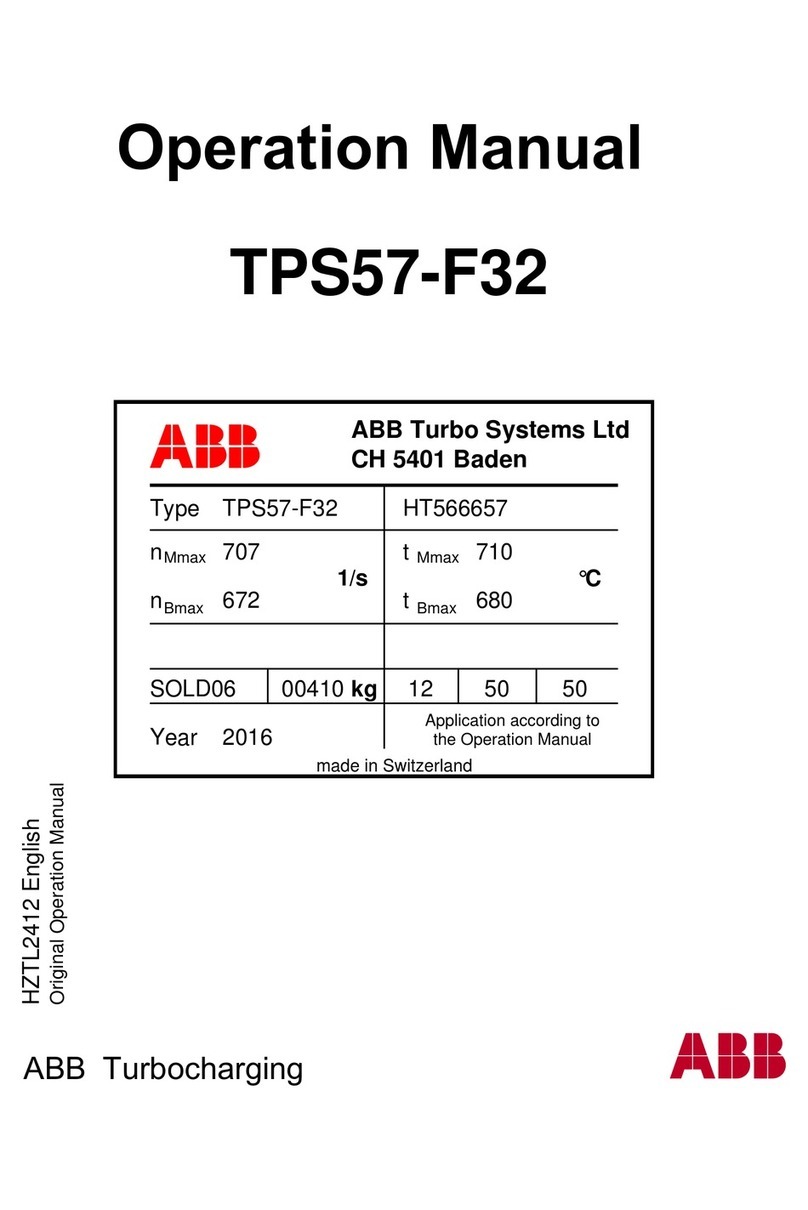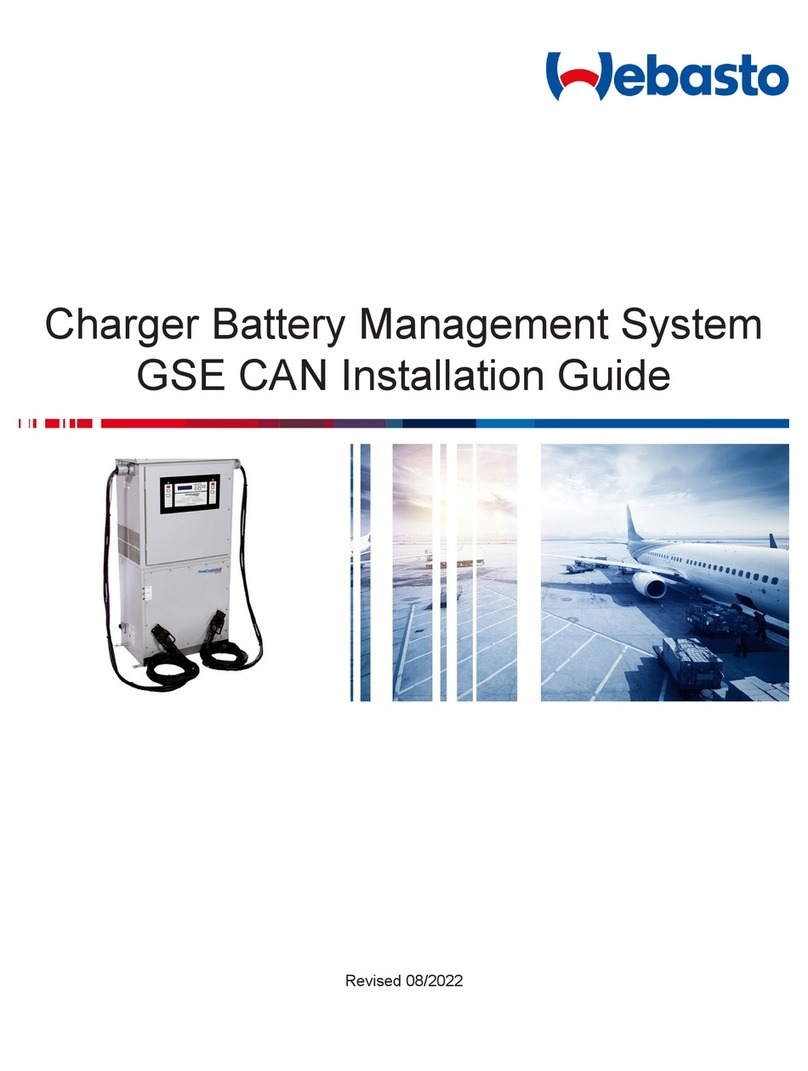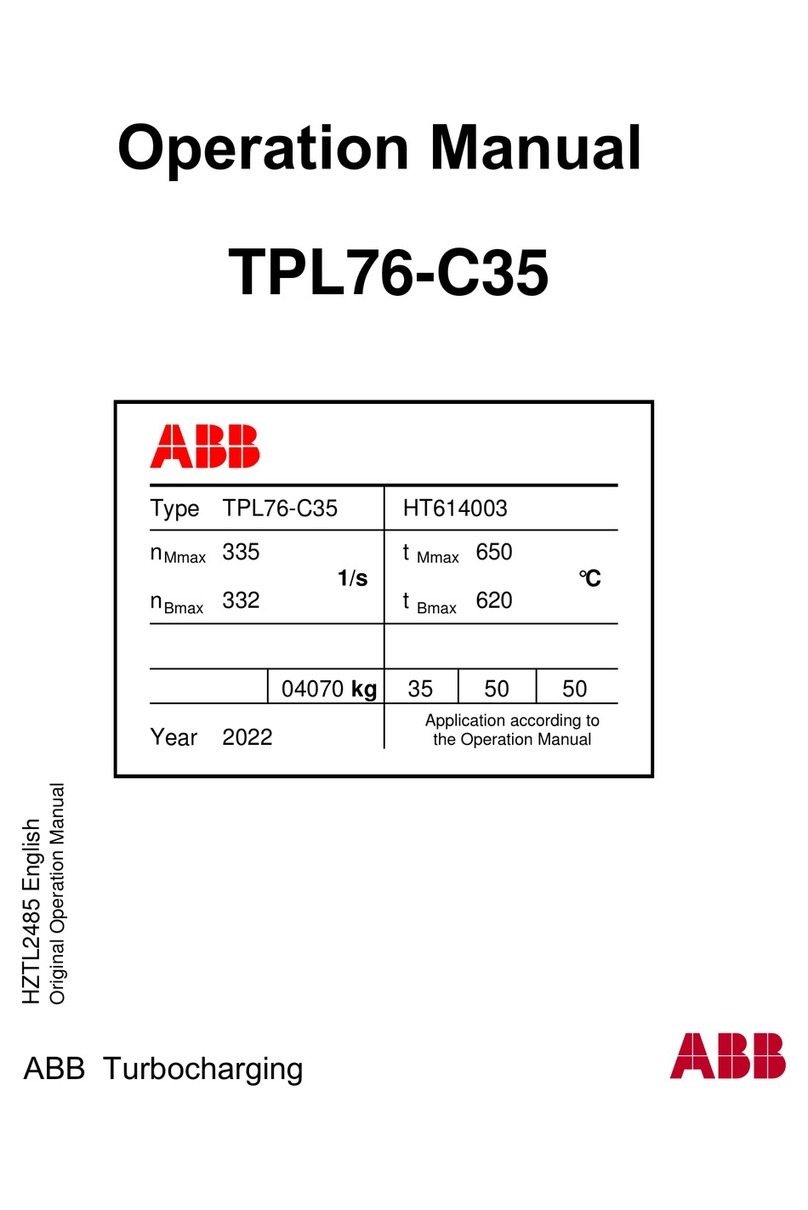• Use suitable shock absorbers or external stops.
To prevent the payload from sliding down suddenly in the event of an air supply
failure in a horizontal or sloping mounting position:
• Use piloted check valves.
To set the speed:
• Use one-way flow control valves in the supply ports:
– Single-acting cylinders: GRLZ (supply air flow control)
– Double-acting cylinders: GRLA (exhaust air flow control)
The one-way flow control valves are screwed directly into the supply ports. Use of
other accessories with a screw-in depth that is too long will damage the cushion-
ing piston.
For position sensing with proximity sensors:
• Use proximity sensors with mounting kit.
Avoid external influence caused by magnetic or ferritic parts in the vicinity of
the proximity sensors (spacing³10mm).
5 Pneumatic installation
• Connect hoses to supply ports3.
6 Commissioning
6.1 Preparation
• Pressurise the entire system slowly. For slow start-up pressurisation use a
soft-start valveèwww.festo.com/catalogue.
With medium or large payloads or at high speeds:
• Use sufficiently large arrester fixtures. Without external arrester fixtures, the
product will tolerate the maximum speeds and payloads set out in the cata-
logue specifications.
6.2 Execution
NOTICE!
Risk of collision due to payloads that project into the setup region of the product.
• Only turn adjusting screws while the product is stationary.
1. At both ends, fully close the one-way flow control valves and setting screws
present for the end-position cushioning, then unscrew by one complete turn.
Note that adjustable end-position cushioning may not be effective in combin-
ation with screwed-in quick exhaust valves. This depends on the flow condi-
tions of the exhaust air.
2. Pressurise the cylinder simultaneously at both ends.
ÄThe piston rod moves slightly to a point of balance.
3. Exhaust the cylinder at one end.
ÄThe piston rod moves to an end position.
4. Start the test run.
5. If the piston rod strikes hard against the end positions or rebounds, correct
the following:
– Speed via the one-way flow control valves
– End-position cushioning via the setting screws
7 Cleaning
NOTICE!
• Do not use aggressive cleaning agents.
• Do not clean the guide elements. Regularly removing the lubricant from the
surface of the piston rod reduces the service life.
• Clean the product with a soft cloth.
The cylinder is furthermore maintenance-free owing to the lifetime lubrication.
8 Fault clearance
Fault description Cause Remedy
Lack of lubricant. Grease with lubricant (as per
wearing parts sheet
èwww.festo.com/spareparts
).
One-way flow control valves are
controlling the flow of supply
air.
Control flow of exhaust air, if
possible (not supply air).
Piston rod is dirty. – Clean the cylinder.
– Provide covering (relubric-
ate after in-depth clean-
ing).
Insufficient supply air (stick
slip)
– Keep the tubing short and
select suitable cross-sec-
tions.
– Select correct pressure.
– Keep pressure constant.
Pressure is too low. Connect volume upstream.
Piston seal or piston rod seal is
defective.
Replace wearing parts
èwww.festo.com/spareparts.
Irregular movement of the pis-
ton rod (cylinder jolts).
Guide is not parallel to direction
of stroke.
Use self-aligning rod coupler as
in accessories
èwww.festo.com/catalogue.
Fault description Cause Remedy
Cylinder barrel is damaged. Replace cylinder.
Setting screw for end-position
cushioning is completely
closed.
Loosen setting screw.
Foreign matter in the cylinder. Filter the compressed air.
Piston does not travel to end
position.
Cylinder travels to an external
end stop.
Readjust the end stop.
Temperatures too high or too
low.
Comply with permissible tem-
perature range of the proximity
sensors.
False triggering during position
sensing
Fault on proximity sensor è Instruction manual for prox-
imity sensor
Tab. 2
9 Disposal
ENVIRONMENT!
Send the packaging and product for environmentally sound recycling in accord-
ance with the current regulations èwww.festo.com/sp.
10 Technical data
DSNU-8…25
Size 8 10 12 16 20 25
Pneumatic connection M5 M5 G1/8
Piston rod thread M4 M6 M8 M10x
1.25
Elastic cushioning rings/plates, at both ends (P cushion-
ing)
– Pneumatic cushioning, can be adjus-
ted at both ends (PPV cushioning)
End-position cushioning
– Pneumatic cushioning, self-
adjusting at both ends (PPS
cushioning)
Mounting position Any
Operating medium Compressed air to ISO 8573-1:2010 [7:4:4]
Notes on the
operating/pilot medium
Lubricated operation possible (in which case lubricated
operation will always be required)
Operating pressure
DSNU-... [bar] 1.5…10 1…10
DSNU-...-S10 [bar] – 1.5…10 1…10
DSNU-...-S11 [bar] – 0.45…
10
0.3…10
Ambient temperature
DSNU-... [°C] –20…+80
DSNU-...-S6 [°C] 0…+120
DSNU-...-S10/-S11 [°C] +5…80
Theoretical force at6bar,
advance
[N] 30 47 68 121 189 295
Theoretical force at6bar,
return
[N] 23 40 51 104 158 247
Basic weight [g] 34.6 37.3 75 89.9 186.8 238
Additional weight per 10mm
stroke
[g] 2.4 2.7 4 4.6 7.2 11
Tab. 3 Technical data for DSNU-8 to DSNU-25
